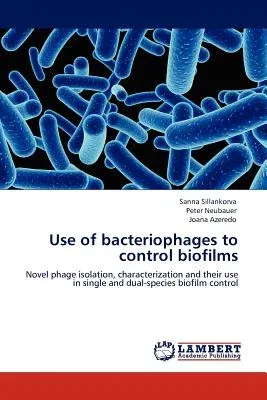Sanna Sillankorva
(Author)Use of Bacteriophages to Control BiofilmsPaperback, 17 July 2011

Qty
1
Turbo
Ships in 2 - 3 days
In Stock
Free Delivery
Cash on Delivery
15 Days
Free Returns
Secure Checkout
Print Length
192 pages
Language
English
Publisher
LAP Lambert Academic Publishing
Date Published
17 Jul 2011
ISBN-10
3845406119
ISBN-13
9783845406114
Description
Product Details
Book Format:
Paperback
Country of Origin:
US
Date Published:
17 July 2011
Dimensions:
22.86 x
15.24 x
1.12 cm
ISBN-10:
3845406119
ISBN-13:
9783845406114
Language:
English
Location:
Saarbrucken
Pages:
192
Publisher:
Weight:
290.3 gm

